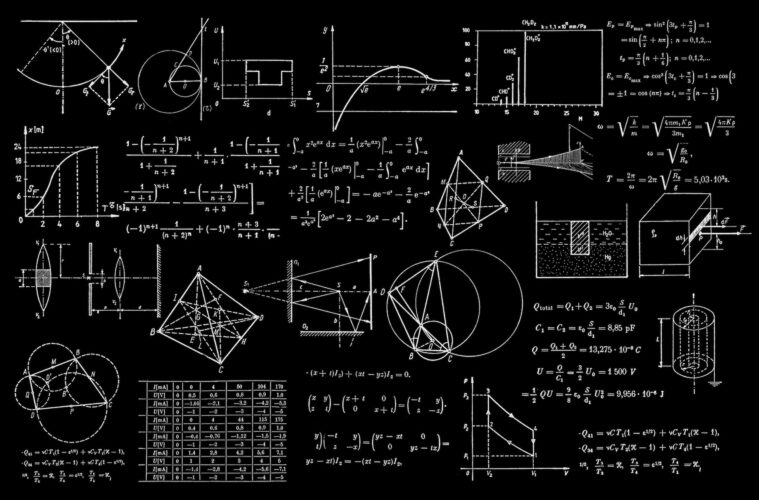Mathematics education serves as a cornerstone of academic curricula worldwide, equipping students with the fundamental skills necessary for success in various career paths. While some students may question the relevance of math beyond the classroom, it is, in fact, a pivotal factor in career readiness. In this article, we will explore the profound connection between math education and career readiness, highlighting how a strong mathematical foundation prepares individuals for diverse, data-driven professions in the 21st century.
The Transformative Power of Mathematics
Mathematics is not merely a collection of formulas and equations; it is a powerful tool for problem-solving, critical thinking, and logical reasoning. Math education instils these skills in students, empowering them to navigate complex challenges in the workforce. Here’s how math education acts as a catalyst for career readiness:
1. Analytical Thinking
Mathematics encourages analytical thinking, teaching individuals to break down complex problems into manageable components. This ability is invaluable in the workplace, where professionals must analyse data, identify patterns, and make informed decisions.
2. Problem-Solving Skills
Problem-solving is a central aspect of math education. Students learn to approach problems methodically, devise strategies, and adapt their approaches when faced with challenges. These problem-solving skills are applicable across various professions, and MathMaster can help you develop these skills further by providing an equation solver app that can assist you in your study.
3. Quantitative Literacy
Math education fosters quantitative literacy, enabling individuals to understand and interpret numerical data effectively. In today’s data-driven world, professionals must make sense of data to inform business decisions, policy recommendations, and scientific research.
4. Logical Reasoning
Mathematics is founded on logical reasoning, which involves constructing coherent arguments and evaluating the validity of statements. This skill is transferable to many careers, aiding in critical analysis and decision-making.
5. Precision and Attention to Detail
Mathematics demands precision, with even minor errors leading to incorrect solutions. Professionals in fields such as engineering, finance, and healthcare rely on precision to ensure accuracy and reliability in their work.
The Nexus of Math and Careers
Now, let’s delve into how math education directly influences career readiness in various fields:
1. STEM Professions
Mathematics is the backbone of science, technology, engineering, and mathematics (STEM) professions. Engineers, computer scientists, physicists, and mathematicians themselves rely on advanced mathematical concepts to develop innovative solutions, create algorithms, model complex systems, and make scientific discoveries.
2. Finance and Economics
In the finance and economics sectors, math education is instrumental. Financial analysts, actuaries, and economists use mathematical models to predict market trends, assess risk, and make investment decisions. Proficiency in math enables these professionals to navigate the intricacies of financial markets.
3. Healthcare and Medicine
Healthcare professionals, including doctors, nurses, and researchers, use math to calculate dosages, interpret medical data, and perform statistical analysis in clinical trials. Math education ensures precision in medical procedures and research.
4. Data Science and Analytics
Data scientists and analysts are in high demand across industries. Their role involves collecting, cleaning, and analysing large datasets to extract meaningful insights. Math education equips individuals with the statistical and analytical skills needed for these roles.
5. Business and Management
In business and management, mathematical concepts such as statistics, probability, and optimisation play a pivotal role. Professionals in these fields use math to make informed decisions, develop marketing strategies, and streamline operations.
6. Environmental Sciences
Environmental scientists and researchers use mathematical modelling to study climate change, ecosystems, and environmental phenomena. Math education enables them to understand and address pressing global issues.
7. Education
Educators who teach math benefit from a deep understanding of mathematical concepts. They use math education to design effective lesson plans, assess student progress, and cultivate math proficiency in future generations.
8. Arts and Humanities
Even in the arts and humanities, math education has relevance. Architects employ geometry and algebra in their designs, and artists use mathematical principles to create intricate patterns and structures.
The Future of Math Education and Career Readiness
As the world becomes increasingly digital and data-focused, the demand for math-educated professionals continues to grow. To ensure that math education effectively prepares students for careers, educators and policymakers must consider the following strategies:
1. Integration of Technology
Leverage technology and educational software to make math education more engaging and interactive. Virtual labs, simulations, and online learning platforms provide opportunities for hands-on learning and real-world applications.
2. Interdisciplinary Approaches
Encourage interdisciplinary learning, where students apply mathematical concepts to solve problems in various fields. Interdisciplinary projects help students see the relevance of math in diverse careers.
3. Emphasis on Critical Thinking
Promote critical thinking and problem-solving in math education. Encourage students to explore open-ended problems, think creatively, and apply math to real-world scenarios.
4. Inclusive Education
Ensure that math education is inclusive, addressing the needs of diverse learners. Support and accommodations should be available for students with disabilities or different learning styles.
5. Real-World Applications
Incorporate real-world examples and case studies into math lessons, demonstrating how math is used in different careers. This approach makes math education more relevant and engaging.
Conclusion
Math education is a linchpin of career readiness in the 21st century. Beyond teaching formulas and equations, it equips individuals with critical skills such as analytical thinking, problem-solving, logical reasoning, and quantitative literacy. These skills are essential in a wide range of professions, from STEM fields to finance, healthcare, data science, and beyond.
As we continue to adapt to a rapidly changing world, math education remains a powerful catalyst for career success. By recognising the profound connection between math education and career readiness, we can empower students to thrive in a diverse and data-driven workforce, where mathematical proficiency is not just an advantage but a necessity.




